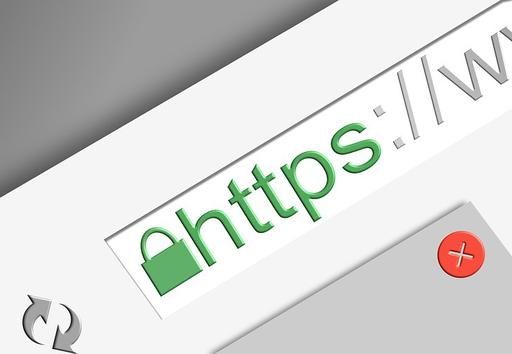SSL - What it Does
Website SSL provides a more secure way to interact with a website. With an SSL site, the URL starts with https instead of http - the "s" stands for "secure". SSL improves security in two ways: authentication and encryption.
- Authentication ensures that the domain being displayed in your browser's address bar is indeed the website you are seeing. This prevents users being victimized by a variety of hacking techniques designed to trick them into entering private information to a website that is not what it appears to be. SSL is not a cure-all, as there are many ways hackers and con-artists can trick people, but it does prevent some of the more insidious methods, such as DNS highjacking and man-in-the-middle attacks.
- Encryption prevents potential eavesdropping, which is especially important if you are accessing the internet over WIFI. Without encryption, your logins, passwords, and other sensitive information could be obtained by anyone able to intercept or listen in on your network traffic.
SSL - Why It's Become So Important
It's the need for encryption that has driven the adoption of SSL in recent years. Increasingly, browsers warn users whenever information is about to be entered on a website that is not using SSL. If you want users to trust your website and feel at ease, SSL has become a must-have.
Another huge motivator for encryption is the increased use of mobile computing. The ease and convenience of WIFI means it is also much easier for somebody nearby to listen in on your network traffic. The need for website SSL was made all the greater in October 2017 when it was discovered that WIFI's built-in security standard, WPA2, is highly vulnerable to attack, affording little protection against eavesdropping.
SSL - What are the Options?
SSL certificates are traditionally issued by a commercial certificate issuer, with prices ranging from tens to hundreds of dollars per year. In 2016, a new system for issuing free automated certs was created by Let's Encrypt, using a protocol called ACME. Commercial SSL certs are typically good for one or two years. Free ACME certs are good for at most 90 days but are renewed automatically.
So if there are expensive SSL certs, and cheaper certs, and very cheap certs, and even free certs, what's the difference?
The good news is that when it comes to encryption, there is no difference. All SSL certificates regardless of cost., support the same enterprise-level 2048-bit data encryption. And as we've seen, encryption is the main issue.
One way SSL certificates can differ is the level of website authentication they provide. The most basic level is domain validation (DV). This means that the domain on the cert matches the domain of the website, so if the browser address bar says https://www.somesite.com then you really are at www.somesite.com. All SSL certs provide this. For the vast majority of websites, this is all you really need.
Commercial SSL certificates can, at additional cost, provide organization validation (OV), and there's an even fancier version of this called extended validation (EV). While DV authenticates the domain, OV and EV also authenticates the legal business name of the organization, providing assurance that the people running the website really are who they claim to be.
With an OV cert, users can inspect the certificate in their browser and see the name of the organization, although most people won't know how to do that. With the even more expensive EV cert, the organization name appears in the browser's address bar in green, making it completely obvious. EV certs are what you normally see with banks and other financial institutions where trust is most important. Twitter currently uses an EV cert, but Facebook and Google don't bother, and just have OV certs. If your domain is widely recognized, then an EV cert doesn't add much.
There are a several other distinguishing features of SSL certificates:
Commercial SSL certificates provide liability protection, covering losses due to a flaw in the certificate. It's like insurance for the cert. For a basic GoDaddy cert, losses up to $100,000 are covered. Free certs do not have this at all, while more expensive certs typically cover higher amounts. It's debatable how useful this is.
Another consideration is reliability. SSL works because each browser - Chrome, Firefox, IE/Edge, Safari, etc - is programmed to trust the various certificate issuers. However if an issuer fails to exercise acceptable levels of security and diligence, they can have this trust revoked at the discretion of the browser makers. This could render invalid some or all of the SSL certificates that they've issued. While such occurences are rare, major websites typically use the more established and reputable issuers, which also tend to be more expensive.
Prestige and reputation can be a factor. Users who are very discriminating and technical may look at the issuer and level of a certificate, and use that to judge the trustworthiness and credibility of a website. A free or bargain-basement cert might be looked down upon.
For organizations wanting SSL on more than one domain, then a multi-domain SAN cert is an option. These support up to five different domains. Prices fluctuate, but if you have three or more domains, then a SAN cert is usually cheaper than three individual basic certs from a commercial issuer.

